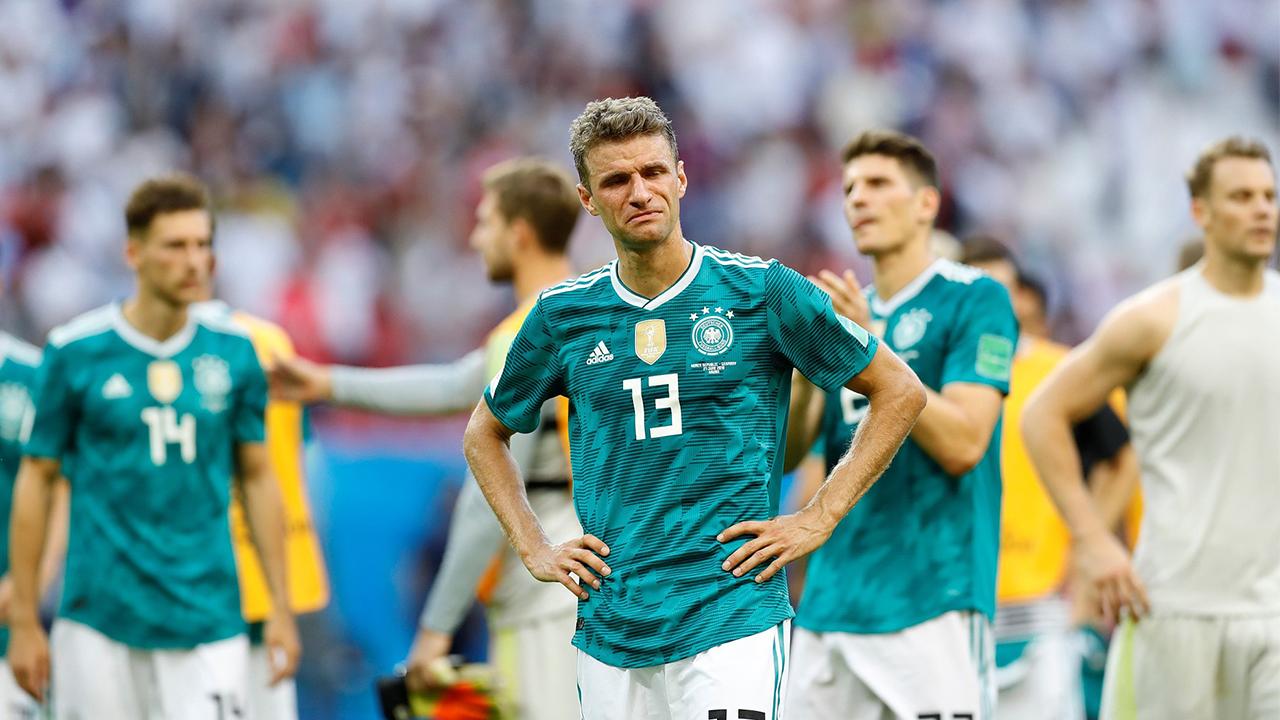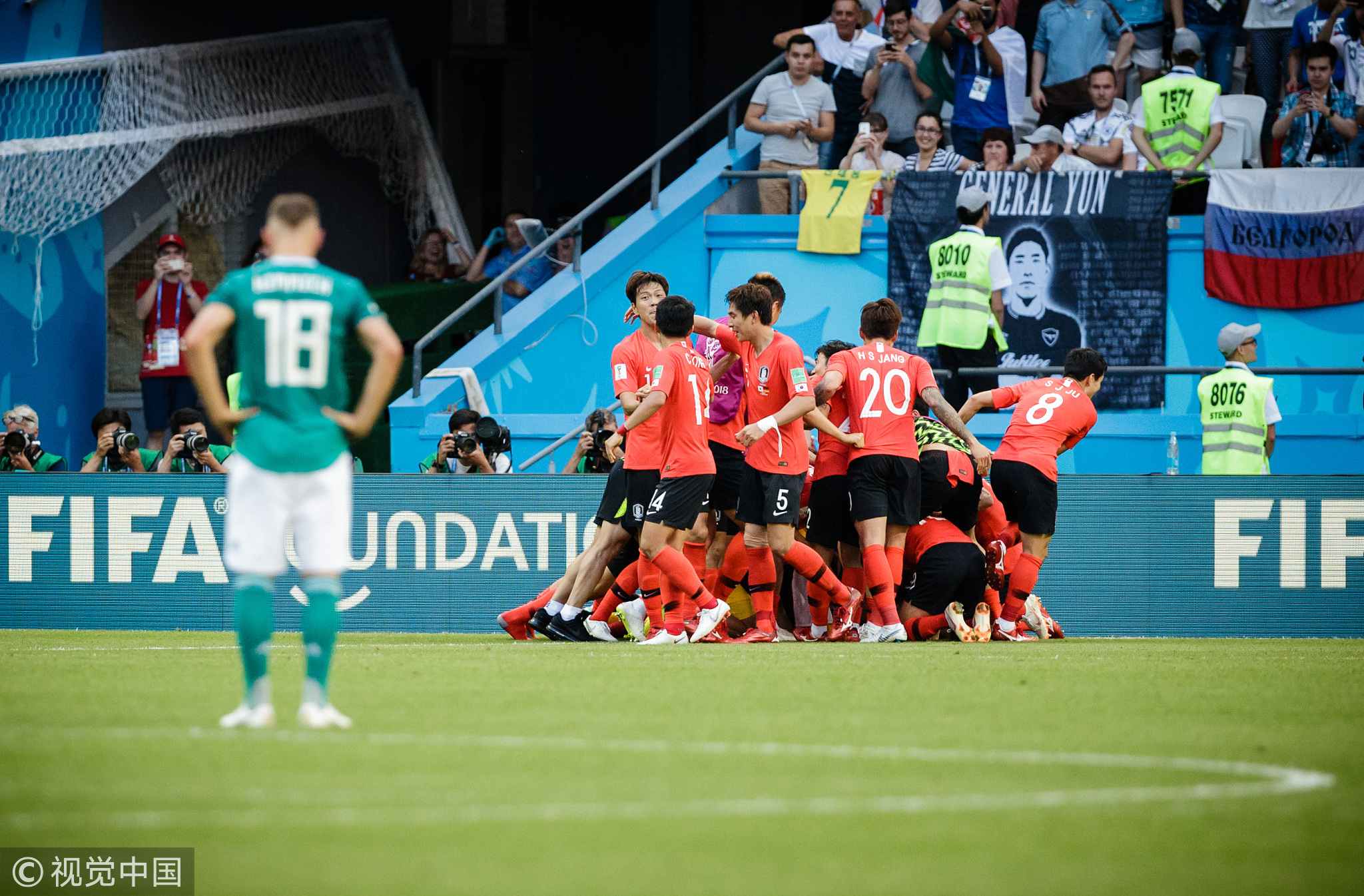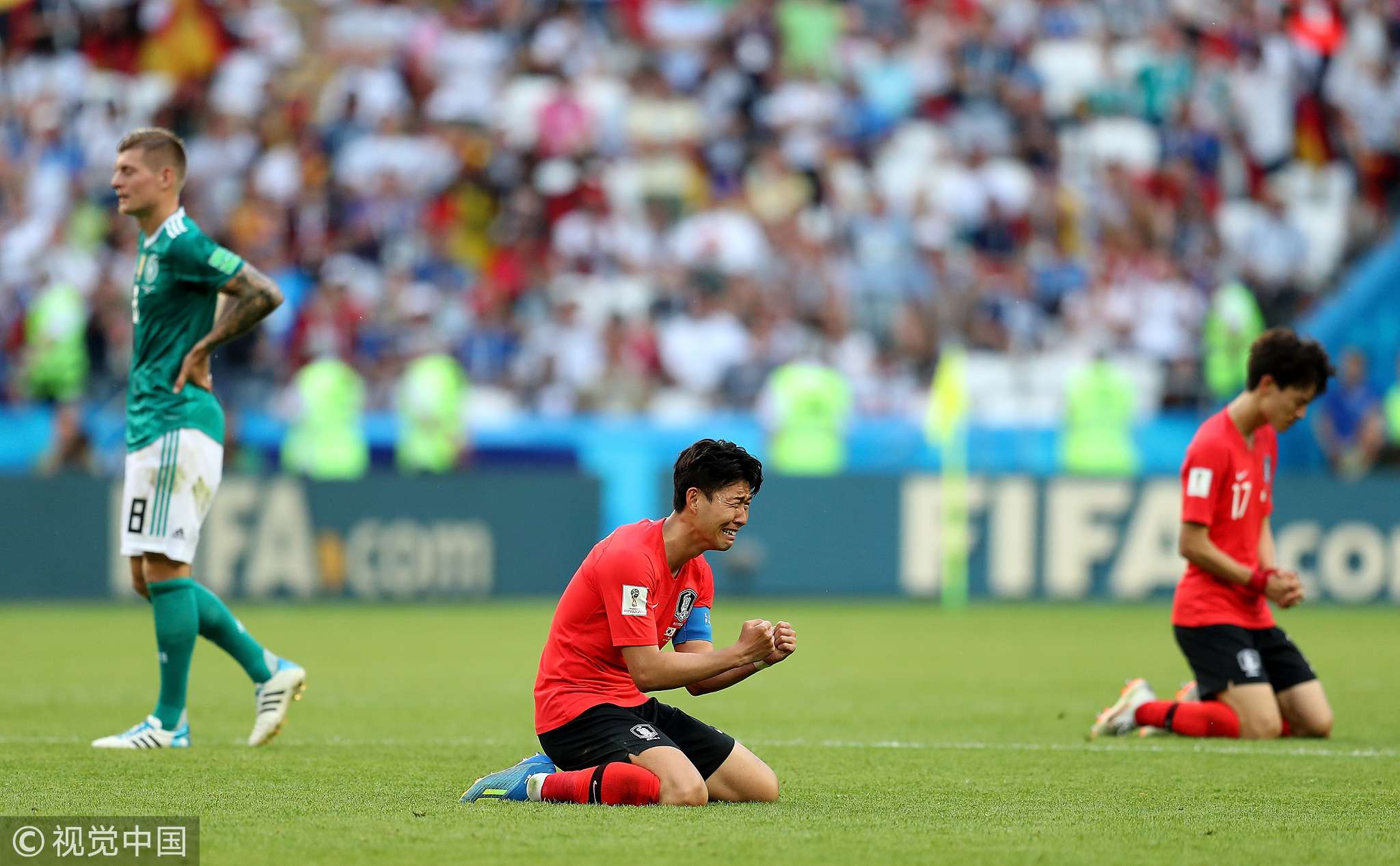
Sports
08:25, 28-Jun-2018
World Cup 2018: Mannschaftdämmerung
Updated
08:16, 01-Jul-2018
Josh McNally
00:44

The rise of the Premier League and the UEFA Champions League has taken some of the luster off the World Cup, but international football is still an exciting prospect because it’s the last vestige of a game that isn’t ruled by the unassailable might of money. Discounting the rare exception of players who hold dual citizenship, you have to love the ones you’re with, and this often leads to teams coming into the tournament with significant imbalances.
As reigning champions, Germany toiled through the group stage. Their major imbalances were revealed; unlike the others with broad problems, Germany’s is brutally specific. They’re missing four key players with the exact skills of Per Mertesacker, Philipp Lahm, Bastian Schweinsteiger and Miroslav Klose. Without Mertesacker and Lahm, whose combination of physicality and agility solidified the defense; without Schweinsteiger to control the tempo of the midfield both forwards and backwards; without Klose to poach goals in the opposition box, striking fear into the heart of their goalkeeper, Germany is essentially a closed loop of immensely talented supporting players.
This was never more clear than in their final Group F game against the Republic of Korea in Kazan as they played the exact same style that saw them lose to Mexico and scrape past Sweden. Defenders playing extraordinarily high and nobody up front, Die Mannschaft were practically begging the S.Koreans, who at this point were guaranteed to go home so had nothing to lose, to hit them on the counter while also remaining completely toothless in attack.

Players of South Korea celebrate while Joshua Kimmich of Germany looks dejected after South Korea scored the first goal during the 2018 FIFA World Cup Russia group F match between Republic of Korea and Germany at Kazan Arena on June 27, 2018 in Kazan, Russia. / VCG photo
Players of South Korea celebrate while Joshua Kimmich of Germany looks dejected after South Korea scored the first goal during the 2018 FIFA World Cup Russia group F match between Republic of Korea and Germany at Kazan Arena on June 27, 2018 in Kazan, Russia. / VCG photo
Germany’s link up play is second-to-none and the individual skills of players such as Toni Kroos, Mesut Oezil and Marco Reus is undeniable so the game played out mostly to their rhythms, and the S. Koreans let them dictate the pace because they knew from watching the previous games and from playing them for more than 15 minutes that they were going to be fine. Niklas Suele would find Kroos, who would lay it up for Oezil, then to Reus, back to Oezil, across to Leon Goretzka and then inevitably to the feet of a defender like Yun Young-sun, out for a goal kick or, if they were extra lucky, a corner.
As anyone who remembers the fraud known as World Cup 2002 will know, the Republic of Korea was a punishingly vicious team so it wasn’t much of a surprise to see Lee Jae-sung pick up a yellow card less than 25 minutes in. Nor was it a surprise to see Germany fail to react in any meaningful capacity to the physicality. For as far back as the days of West Germany, it’s never been wise to count them out, which is why after two full games of low energy uncreative play, it still felt like they had arrived when Kroos scored that sensational free kick in extra time against Sweden.
Instead, Kroos emotional celebration appeared to have used up the last of the team’s already dwindling power supply and, as half time approached, they found themselves - as expected -repeatedly forced to track back as Korea’s strikers Koo Ja-cheol and Son Heung-min burst through the defense. The sight of an obviously not match-fit Manuel Never struggling with Korea’s terrible offense will go down as one of the saddest of Russia 2018.
At the same time as this was happening, Sweden were playing Mexico and if the Swedes won, they would go through at the expense of Germany. Five minutes into the second half Sweden scored, making it 1-0 and sending Germany into third place, but this didn’t fire them up – in fact, one minutes later, Timo Werner missed a sitter, keeping the score at 0-0. Just on the other side of the hour, Sweden scored a penalty making it 2-0 in their game; at roughly the same time, Loew swapped out Sami Khedira and Goretzka for Mario Gomez and Thomas Mueller. Two mercurial forwards with half an hour to play was always going to be risky, but all they needed was one goal to send a thoroughly trounced Mexico out. However, with Korea Republic already well aware of their tactics, they found themselves swamped with bodies and barely got involved.

Son Heung-min from Republic of Korea sinks to his knees as he celebrates following his sides victory in the 2018 FIFA World Cup Russia group F match between Republic of Korea and Germany at Kazan Arena on June 27, 2018 in Kazan, Russia. / VCG photo
Son Heung-min from Republic of Korea sinks to his knees as he celebrates following his sides victory in the 2018 FIFA World Cup Russia group F match between Republic of Korea and Germany at Kazan Arena on June 27, 2018 in Kazan, Russia. / VCG photo
Germany’s best chance came in the 87th minute as a beautiful Oezil cross found Hummels in acres of space, only for the defender to completely miss with his header, knocking it out for a goal kick off his shoulder. For the first time since 1938, Germany was going home in the group stage and three minutes into extra time, insult was added to injury. A scramble in the box caused a desperate Kroos to pass the ball back to Suele, hoping he would clear it – instead, the ball went through his legs and ended up directly in front of Kim Young-gwon, who blasted it over Neuer into the back of the net from the inside of the six yard box.
VAR confirmed it wasn’t offside, as initially ruled, making it 1-0 to the Republic of Korea. With six minutes left, it managed to get even worse for Germany as Neuer made his way up the pitch to form an 11-man outfield and leave a totally open goal that was found with ease by Son.
Besides for home, of course, where does Germany go next? They’ll rebuild, as they always do, but the fall from grace has been staggering. In four years, Loew has gone from genius to dunce, and nobody has or appears to be able to fill the boots of the legends who retired after Brazil 2014. If there’s any consolation to this grim state of affairs, it’s that they’re in good company: France, Italy and Spain all failed to escape the group stage after winning the previous World Cup.
It can mean only one thing: Beware all you who play here, the World Cup winners' curse is real.

SITEMAP
Copyright © 2018 CGTN. Beijing ICP prepared NO.16065310-3
Copyright © 2018 CGTN. Beijing ICP prepared NO.16065310-3